Last month’s Gay Games seemed to go off well, despite getting the cold shoulder from Hong Kong’s government. Unlike in other countries, where local governments have provided financial and logistical support, the authorities refused official assistance.
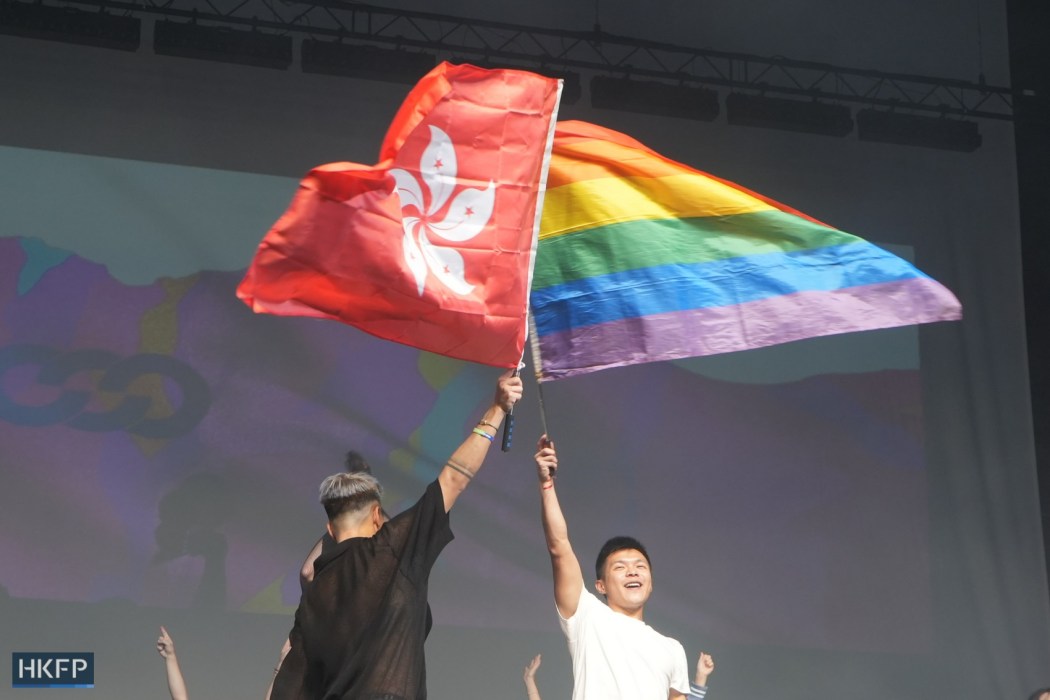
In the run-up to the event, a number of Hong Kong lawmakers demanded that the government ban it on the grounds of its “soft resistance” – to who knows what – and as a supposed risk to national security. Their protest revealed both the nastiness of high-level anti-gay bigotry in Hong Kong and the degree to which obsessions about wildly imagined threats to national security have permeated officialdom.
Perhaps Hong Kong dodged a bullet, and the next gay event WILL endanger the city. The police seemed to think so: at a recent gay carnival, they kettled participants behind barriers and denied them their own liquor. In other world cities, uniformed police proudly take part in gay celebrations. In Hong Kong, police are on the lookout for seditious feather boas.
Hong Kong’s gay (LGBTQ+) community lacks a number of important legal protections and public benefits enjoyed by others. One hesitates to list where protections are lacking for fear of giving ideas to its antagonists. Suffice it to say that some of the important rights and benefits that straight people in Hong Kong take for granted are not always available to the city’s gay citizens.
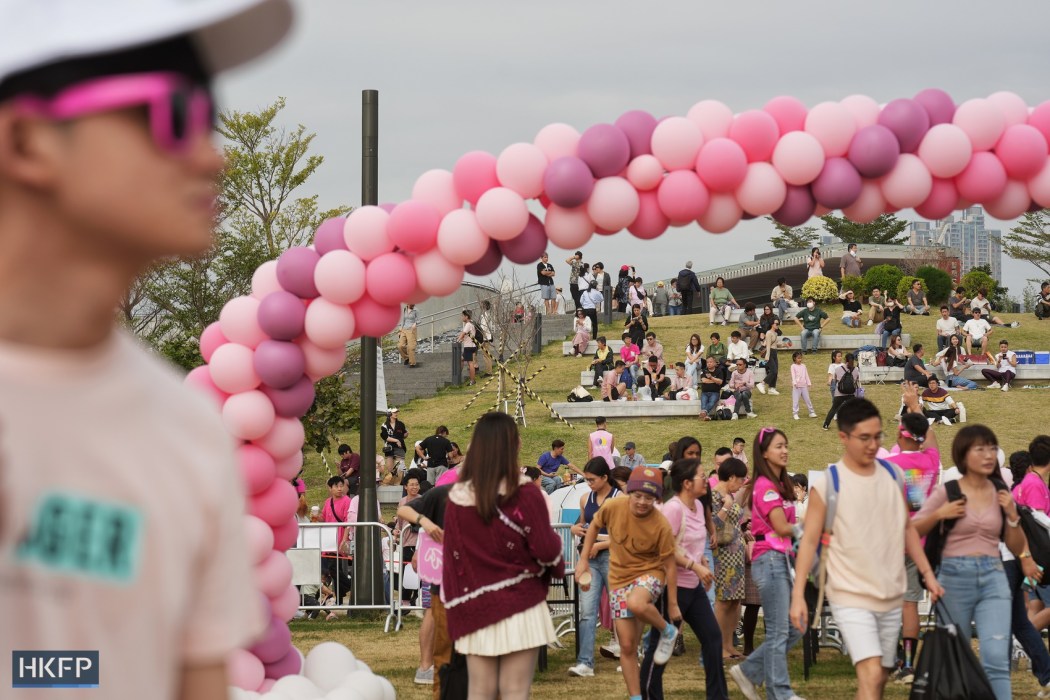
Hong Kong courts have tried to relieve some of gay people’s burdens. For example, judges have ruled that same-sex couples married someplace else should be treated the same as opposite-sex couples when it comes to inheritance and public housing rights. Predictably, the government is appealing these rulings.
The top court decided that Hong Kong’s mini-constitution, the Basic Law, does not give same-sex couples an equal right to marriage, but in so doing it ruled that a lack of legal recognition for same-sex partnerships is discriminatory. The government is dragging its feet on providing that recognition.
The Justice Department apparently advised the Equal Opportunities Commission – which one would expect to advocate, well, equality – not to support equal-rights legislation for gay people. The persistence – and perseverance – of city officials in trying to deny equal rights is quite remarkable given the blasé manner in which gay people’s rights are treated in places with more socially advanced regimes.
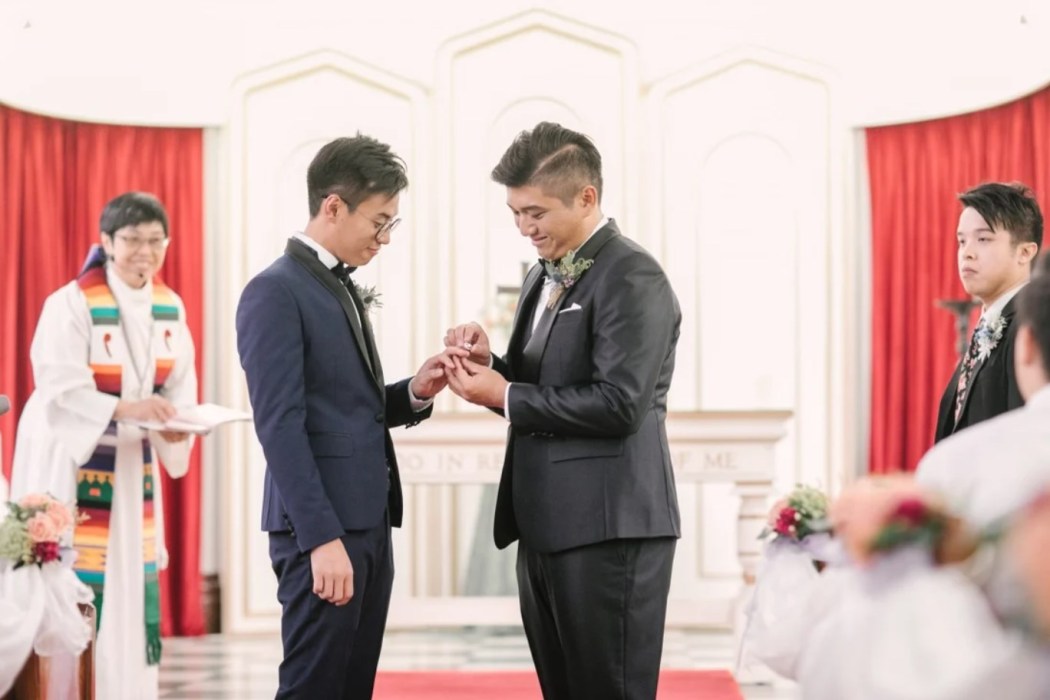
For every Hong Kong official who lies awake at night worrying that two lesbians might get married or, heaven forbid, seek to share custody of their children, there are many good-hearted citizens who reject the government’s penchant for seeing problems where they don’t exist. Most people seem be accepting, and often welcoming, of the diversity that sexual minorities bring to society, or at least believe in a policy of “live and let live.”
Polls show that the majority of Hong Kong people do not support the government’s harsh approach to the gay community. A strong majority support the right of gay men and lesbians to marry without having to travel to Taiwan or one of the many other jurisdictions that happily codify same-sex marriages.
John Burns has argued on these pages that the estimated more than 400,000 gay people in Hong Kong endure daily discrimination simply for who they are. The existence of such a large minority is one of many reasons for giving gay people the same legal protections – no more, but also no less – enjoyed by others.
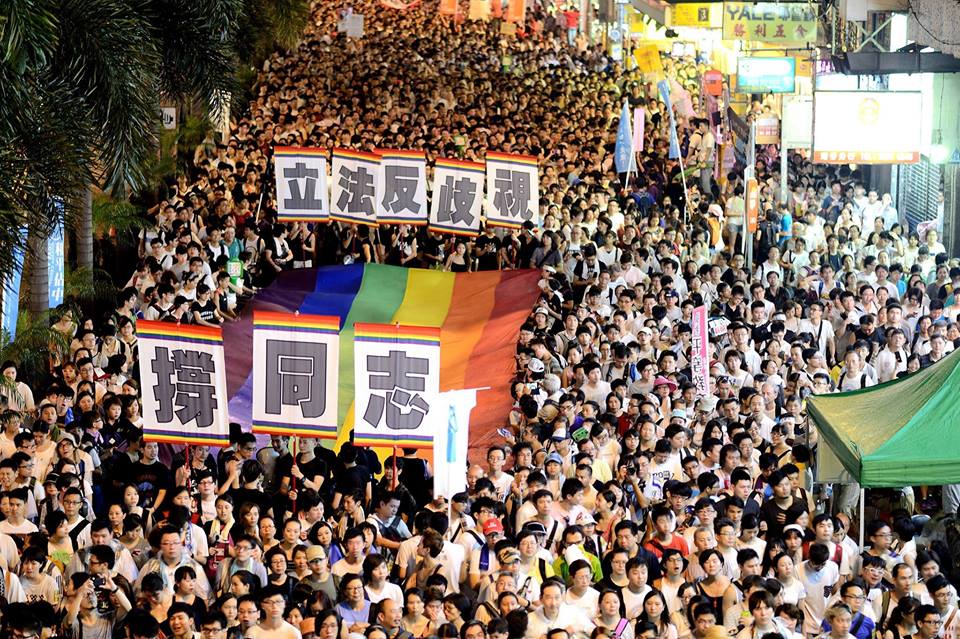
But in rightly making this argument, professor Burns may have reinforced in some officials’ minds the importance of keeping gay people down: the size of the gay community in Hong Kong may be precisely the reason to suppress it. The Chinese party-state, and presumably its minions in Hong Kong, seems to see every minority of any size as a potential threat. The larger the minority, the larger the perceived threat, and thus the greater the perceived need to control or subdue it.
If someone can be sacked for being gay, they are much less likely to be open about their gayness. From the government’s perspective, this could be seen as a useful deterrent to potential critics and those outside the official definition of good citizenship, a definition that becomes narrower by the day.
We should sympathise with gay people in Hong Kong. They aren’t asking for anything at all. They want government and bigoted bosses and proprietors to give them no special treatment. This requires the government to stop working so hard to deny them equality.

As we lament what’s happening to gay people in Hong Kong, we should spare a thought for their counterparts, and indeed many other types of people, in mainland China. The official discrimination that Hong Kong’s gay citizens suffer is the relatively benign tip of an enormous iceberg of human rights abuses across China.
The list of people in China whose rights are curtailed is lengthy. Any group that openly identifies as such, and even more so if it demands equal treatment, appears to be a security threat according to the party-state. The more powerful China becomes, the more its government seems to feel the need to suppress many of its citizens.
The list of suffering groups is a long one, including, inter alia, people distinguished by language and ethnicity (Tibetans, Uyghurs and Mongolians), religion (Christians and especially Muslims), and even fashion and hobbies (men who wear makeup or women who wear kimonos).
The list includes women who, until not long ago, were forced to have abortions when they didn’t want them but may soon be pressured not to have abortions when they want them as part of efforts to bolster a dwindling population caused by those forced abortions.
Environmentalists are considered threats because they showcase the failings of the regime in protecting the environment. Lawyers are threats because they bring to light the unconstitutional behaviour of officials and abuse of the law against citizens.
The list of threatening phenotypes goes on and on. It seems that any subgroup in China will come under official threat of marginalisation, or worse, if it attempts to organise compatriots, especially if the objective is to influence government policy – even if the objective is to make Chinese society stronger, healthier and happier.
The Chinese government of course denies accusations of human rights abuses. However, there’s evidence that they may see some truth in the accusations: when anyone makes them, Chinese officials become enraged, issuing denials that sound like they were drafted by North Korean propagandists. As the Bard of Avon put it: “methinks the lady doth protest too much.”
This contrasts with reactions from Western governments when China accuses them of violating human rights: they shrug.
Societies with oppressed minorities are morally inferior to those in which everyone is equal before the law and treated accordingly. Even for the majority of people who are not gay, living in a society where gay people are actively denied equal rights is harmful.
For starters, some bright stars in the business and scientific worlds prefer not to work and live where they could be denied equal rights. No wonder so many people are leaving Hong Kong – and no wonder the government has to work so hard to sell its vision of a “Happy Hong Kong”.
Of course the official bigots in Hong Kong are not alone in vilifying the gay community. In the United States, Republican-dominated states have singled out gay people for legislative attack, in Uganda gay love is punished with life imprisonment, and in Russia gay people and their supporters are treated just as some Legislative Council members seem to wish they would be treated here – as “extremist” threats to the security of society.
The situation in mainland China is not so visible because the gay community there is contained. However, if it were to raise a public stink, it would likely suffer the same fate as in Russia. Hong Kong might not be far behind if recent political repression is anything to go by.
A question for those in power in Hong Kong and Beijing is whether they really want to have as their role models radical Republicans in America, pseudo-religious bigots in Uganda and neofascist nationalists in Russia. Maybe they do.
Alas, gay people in Hong Kong can expect more years of inequality and fear-mongering. This isn’t because the government is being lazy about protecting their rights. Instead, it is actively following Beijing’s playbook.
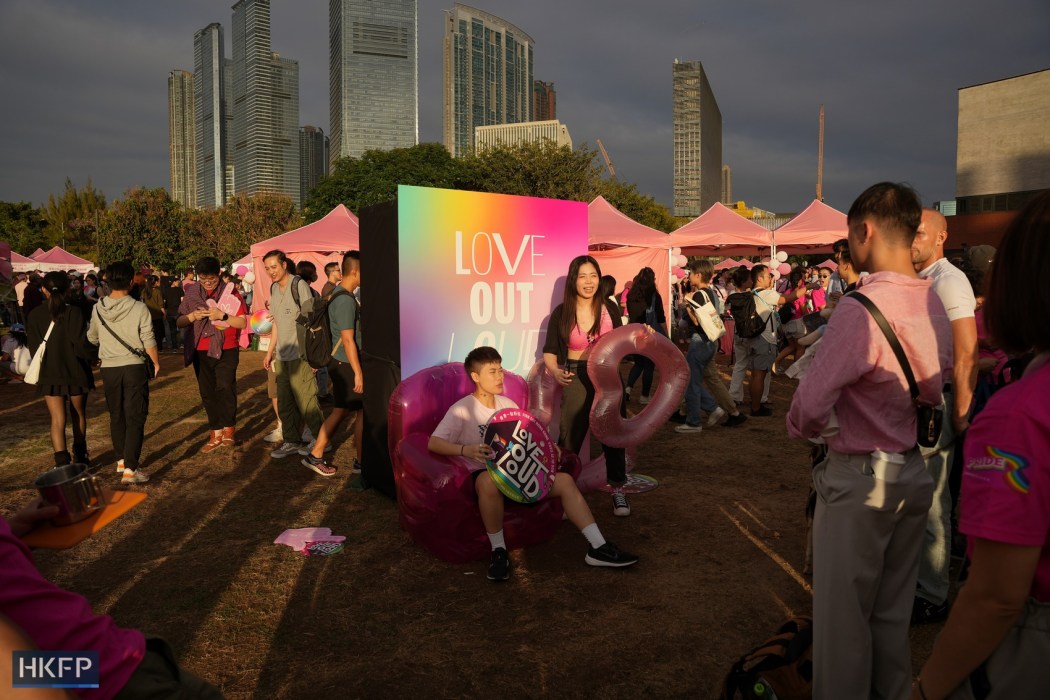
In the big scheme of things, not least what the United Nations argues may be crimes against humanity in Xinjiang, the daily inequities experienced by Hong Kong’s gay people may seem rather insignificant. One might point to worse injustices in China, and indeed elsewhere, that deserve our attention. The Hong Kong government isn’t arresting people for being gay. But is this the sort of calculation we should have to make in Hong Kong? Isn’t the city better than that?
As we approach the Christmas holiday and year’s end, perhaps the government could give the gift of equality to Hong Kong’s gay community. No doubt that is asking too much.
Could it at least make a New Year’s resolution to take its cue from the courts and stop working so diligently to deny equality to gay people? A merry Christmas can be a gay one, after all. The same could be said of a happy New Year.
Type of Story: Opinion
Advocates for ideas and draws conclusions based on the interpretation of facts and data.
Support HKFP | Policies & Ethics | Error/typo? | Contact Us | Newsletter | Transparency & Annual Report | Apps
| HKFP is an impartial platform & does not necessarily share the views of opinion writers or advertisers. HKFP presents a diversity of views & regularly invites figures across the political spectrum to write for us. Press freedom is guaranteed under the Basic Law, security law, Bill of Rights and Chinese constitution. Opinion pieces aim to point out errors or defects in the government, law or policies, or aim to suggest ideas or alterations via legal means without an intention of hatred, discontent or hostility against the authorities or other communities. |
Help safeguard press freedom & keep HKFP free for all readers by supporting our team

More HKFP OPINION:
HKFP has an impartial stance, transparent funding, and balanced coverage guided by an Ethics Code and Corrections Policy.
Support press freedom & help us surpass 1,000 monthly Patrons: 100% independent, governed by an ethics code & not-for-profit.










